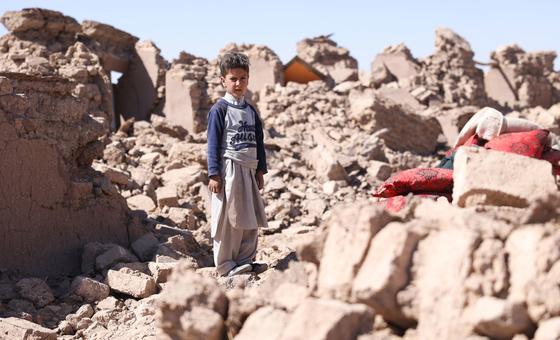Aid Effort Underway After Afghanistan Quake Devastates Villages
International affairs correspondent with extensive experience covering global politics, diplomacy, and cross-border issues

In the wake of a powerful earthquake that struck eastern Afghanistan, claiming at least 800 lives, the international community has mobilized to provide critical aid. UN Secretary-General António Guterres has pledged unwavering support to the affected regions, emphasizing solidarity with the Afghan people during this catastrophic time.
The magnitude six earthquake that hit remote areas of eastern Afghanistan has left a trail of destruction, particularly in the provinces of Nangarhar and Kunar. The immediate aftermath sees a grim picture of rural communities wiped out, with hundreds of homes collapsing in hillside areas. Salam Al-Jabani from UNICEF explained that the timing of the quake, late at night, contributed to the high casualty rate as families were asleep in their homes. The United Nations and its agencies have swiftly responded, deploying resources and personnel to support the ongoing relief efforts.
Reports indicate that the earthquake's epicenter was shallow, only about eight kilometers underground, causing tremors felt as far as Kabul and Islamabad. The UN Humanitarian Air Service has increased flights to transport personnel and supplies between Kabul and Jalalabad, aiming to bolster the response efforts. However, rescuers face significant challenges due to poor communication networks, which are hindering rescue operations and assessments.
The United Nations Assistance Mission in Afghanistan (UNAMA) and other agencies, including WHO and OCHA, are actively involved in the relief operations. They are prioritizing the delivery of essential medical supplies, deploying health teams, and assessing urgent health needs. The extensive damage has overwhelmed local capacities, with UNHCR reporting over 2,000 injuries in Kunar province alone. Aid workers are in a race against time to reach those trapped in remote areas, accessible only by foot.
Efforts to clear roads blocked by debris are underway, with de facto authorities deploying heavy machinery in the hardest-hit districts of Nurgal and Chawkay. Despite these efforts, many communities remain isolated, requiring several hours of travel by foot to reach them. Critically injured individuals are being airlifted to hospitals in Jalalabad and Asadabad, which now serve as the primary medical centers for the disaster's victims. The complex terrain poses a considerable challenge to timely aid delivery.
This earthquake is one of the most severe to strike Afghanistan, following a series of deadly quakes in Herat less than two years ago. The ongoing crisis highlights the urgent need for international solidarity and support. UNHCR's Babar Baloch has called on the global donor community to step up, stressing that the scale of the disaster exceeds local capabilities. As Afghanistan grapples with multiple challenges, including drought and returning migrants, this latest tragedy underscores the critical need for sustained humanitarian assistance.
About Alex Rivera
International affairs correspondent with extensive experience covering global politics, diplomacy, and cross-border issues